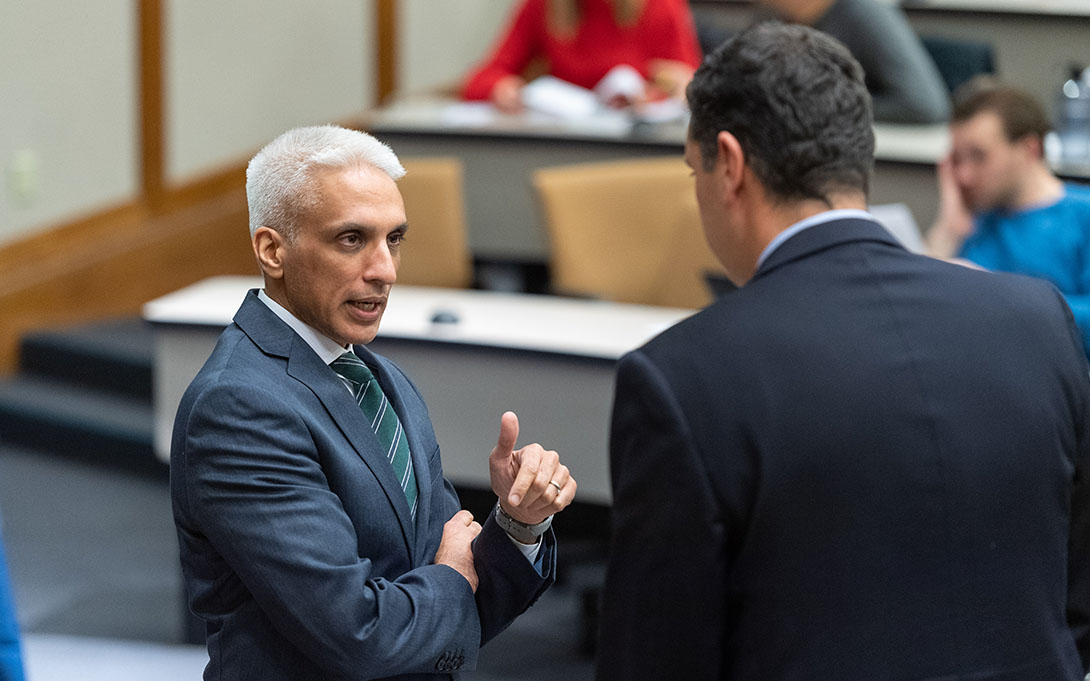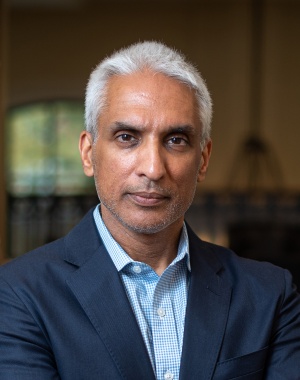
Having passed the Pentagon 30 minutes before American 77 hit the building on 9/11 brought the threat of international terrorism home in the most unimaginable way."
Javed Ali
I long had the career goal of working for the U.S. government in the mysterious world of intelligence, with a particular focus on counterterrorism. This goal developed early in my life, shaped by experiences during overseas travel, the sense of history I learned from my parents’ upbringing in India, our identity as Muslim Americans, and real-world developments in the Middle East and South Asia where the threat of terrorism loomed large. This path, however, seemed distant and remote to the successful careers my parents had as physicians, or to others around us in our community in metropolitan Detroit where public service roles— and especially ones focused on national security issues—were rarely discussed or encouraged.
I moved to Washington, DC, in the mid-1990s, and I started to slowly build a professional career focused on terrorism and counterterrorism issues, but in the think-tank and private sectors. Having passed the Pentagon 30 minutes before American 77 (the third hijacked plane) hit the building on 9/11 brought the threat of international terrorism home in the most unimaginable way, and by the spring of 2002, I finally crossed over into the professional world I so long pursued with my first U.S. government role at the Defense Intelligence Agency.
My time at the Department of Homeland Security during the mid-2000s was eye-opening, as this new department was charged with new functions and roles that had never existed before in U.S. history. This included unclassified threat warnings to the general public and other stakeholders to help prepare for the possibility of terrorist attacks, a function that had to come from the federal government and could not be replicated at the state or local level, or in the private sector.
Fast forward a decade later; the year I spent on the National Security Council in 2017–2018 was profound, given the unique role it plays in the U.S. national security arena and the wide collection of dedicated and focused career professionals from the military, law enforcement, and intelligence communities I worked alongside to keep the country safe from threats at home and abroad. I was especially struck by my colleagues who had at previous points in their career operated in dangerous environments overseas or had been in frequent combat and remained low-key and humble about these aspects of their careers.
It has been a tremendous honor to return to my alma mater after leaving government and to teach classes on national security—and also impress upon students the value of public service and the sense of pride that comes along with these opportunities.
I encourage students to think critically about the tough choices policymakers have to confront and ask them to challenge conventional wisdom or even their own perspectives when examining national security.
Striving to achieve broad goals that benefit the national good, but with little recognition or fanfare, is an honorable and rewarding pursuit, and I have been thrilled when students in my classes have elected to choose that same path. Seeing that same spark of inspiration and passion for public service is one of the many rewards of serving at this great institution.
By Javed Ali, associate professor of practice
More in State & Hill
Below, find the full, formatted spring 2024 edition of State & Hill. Click here to return to the spring 2024 S&H homepage.
